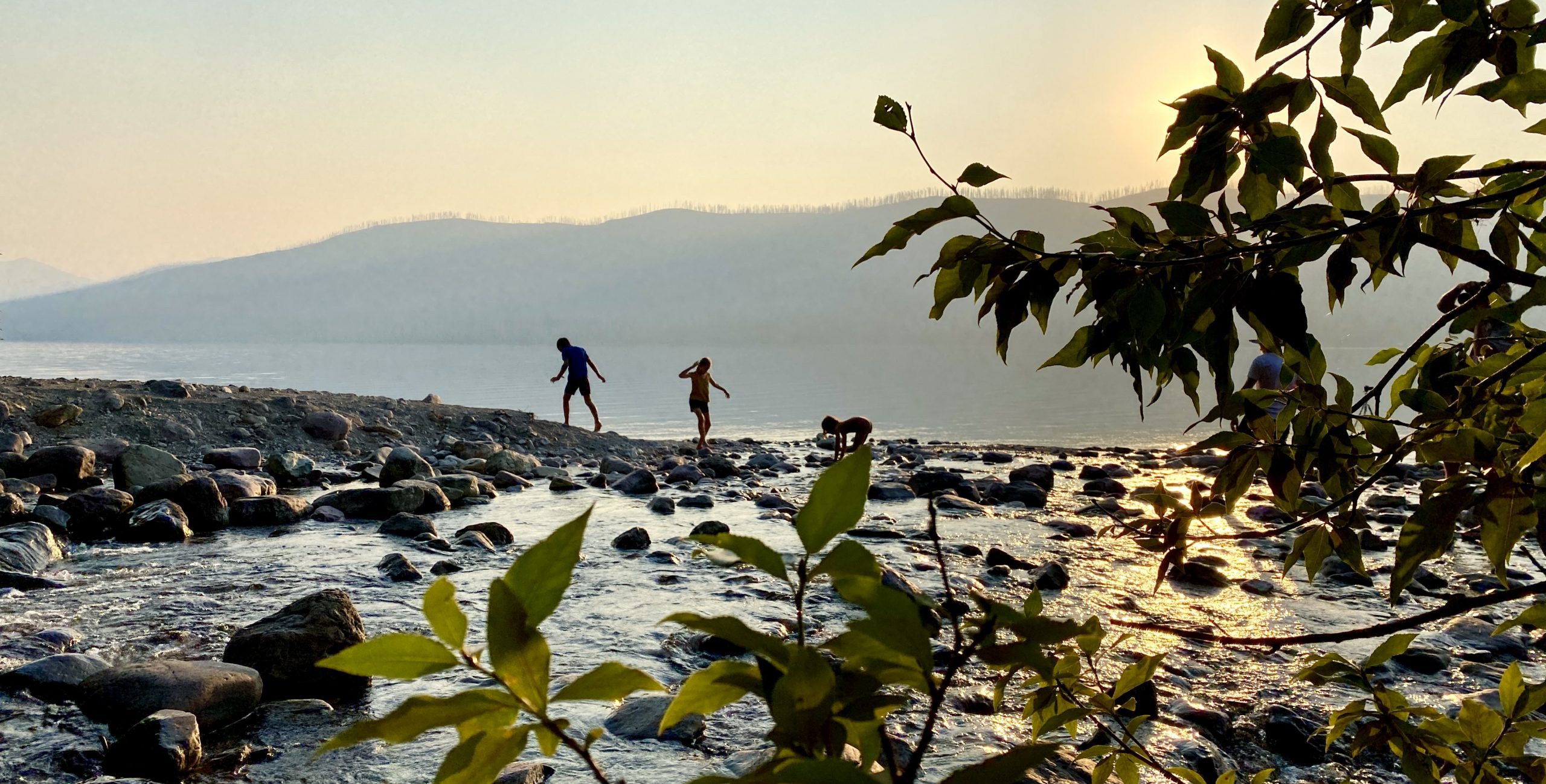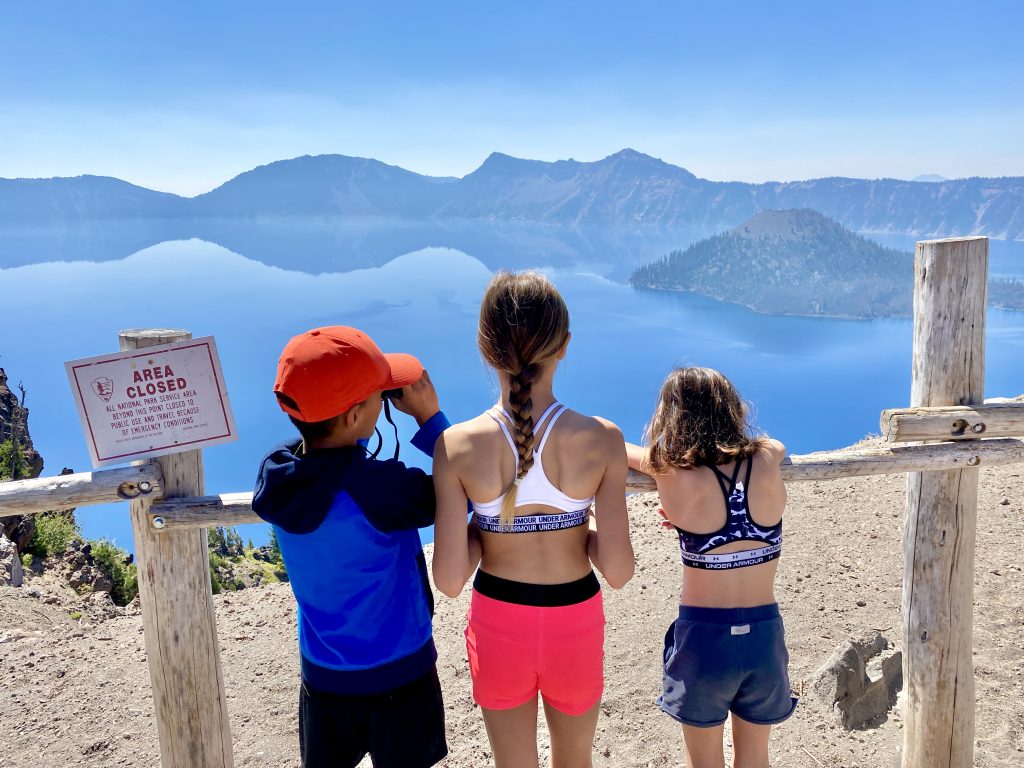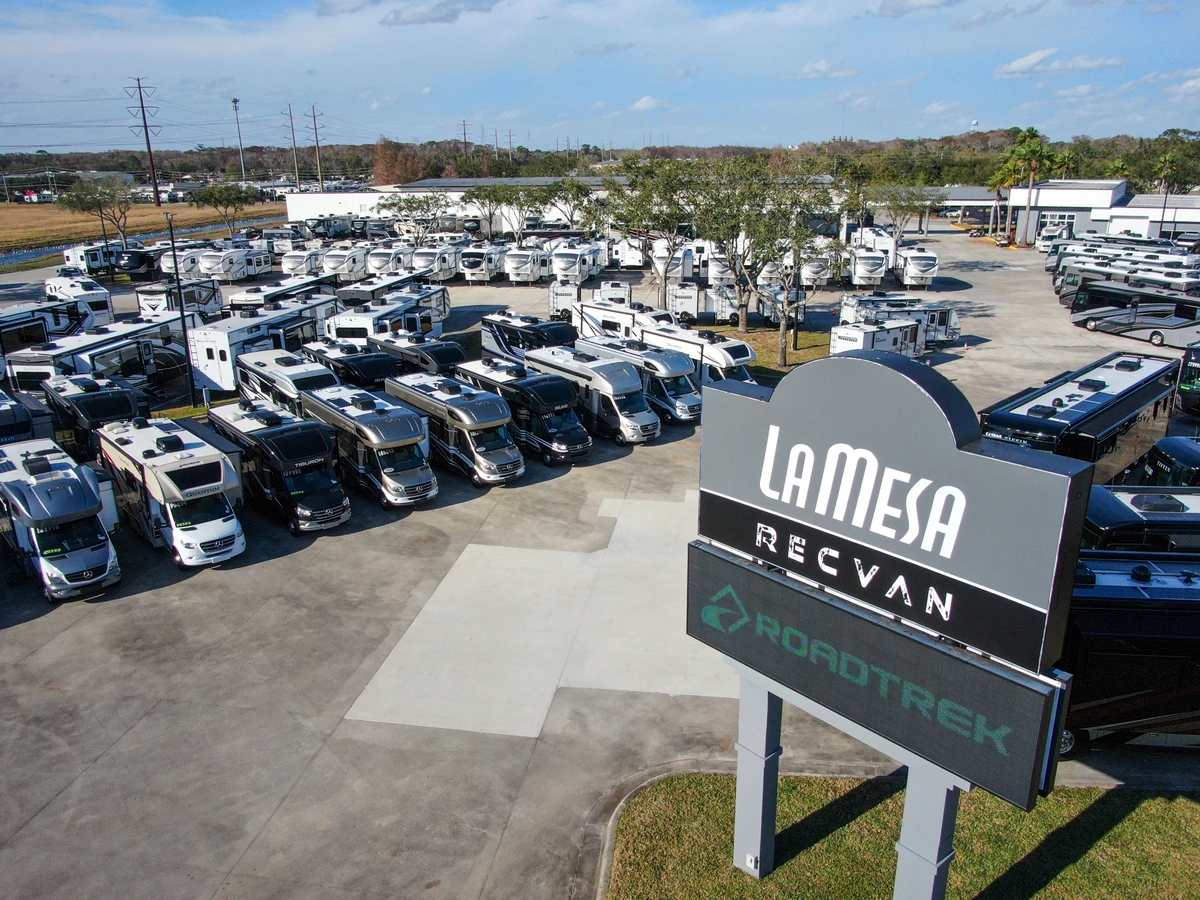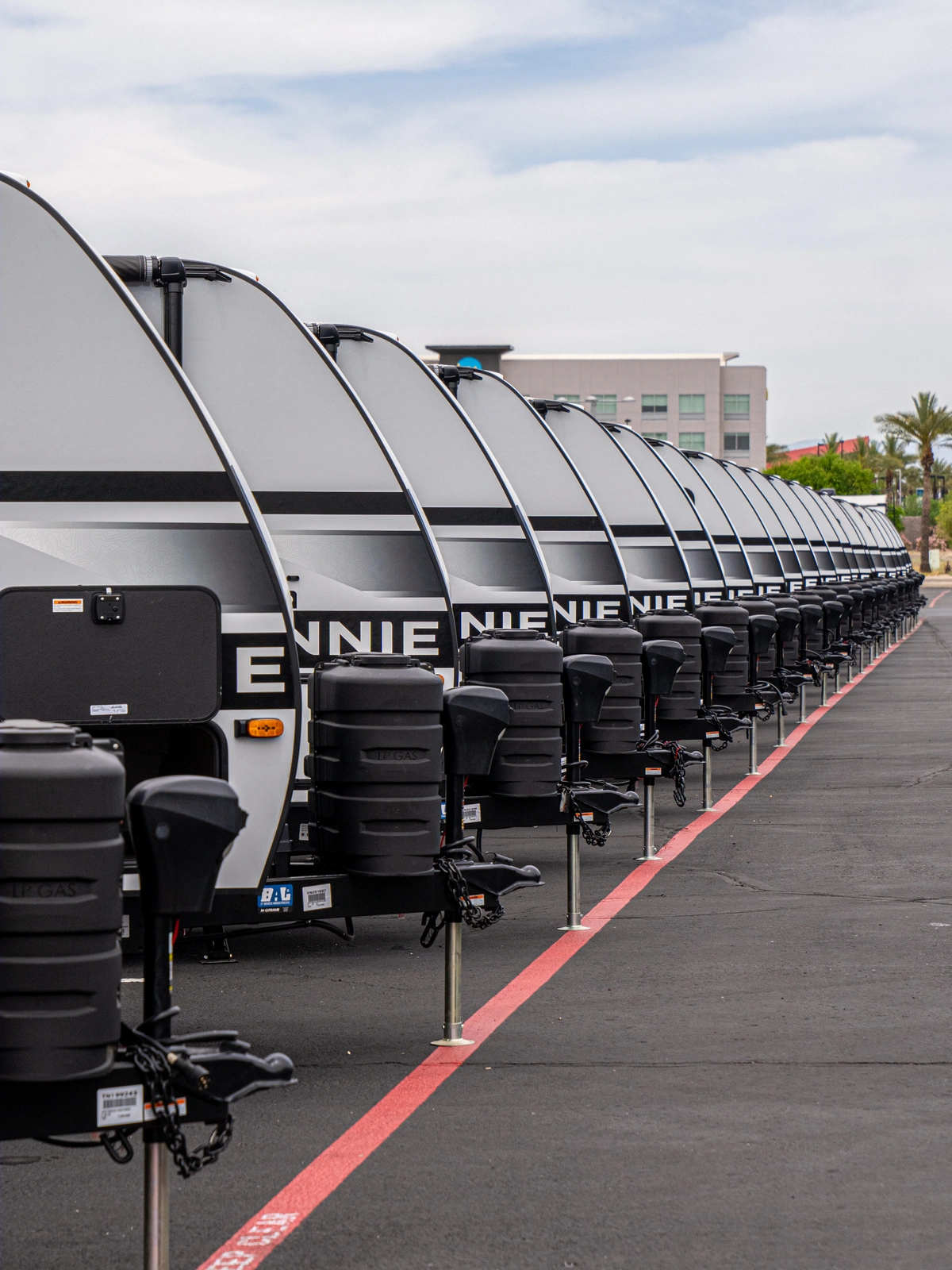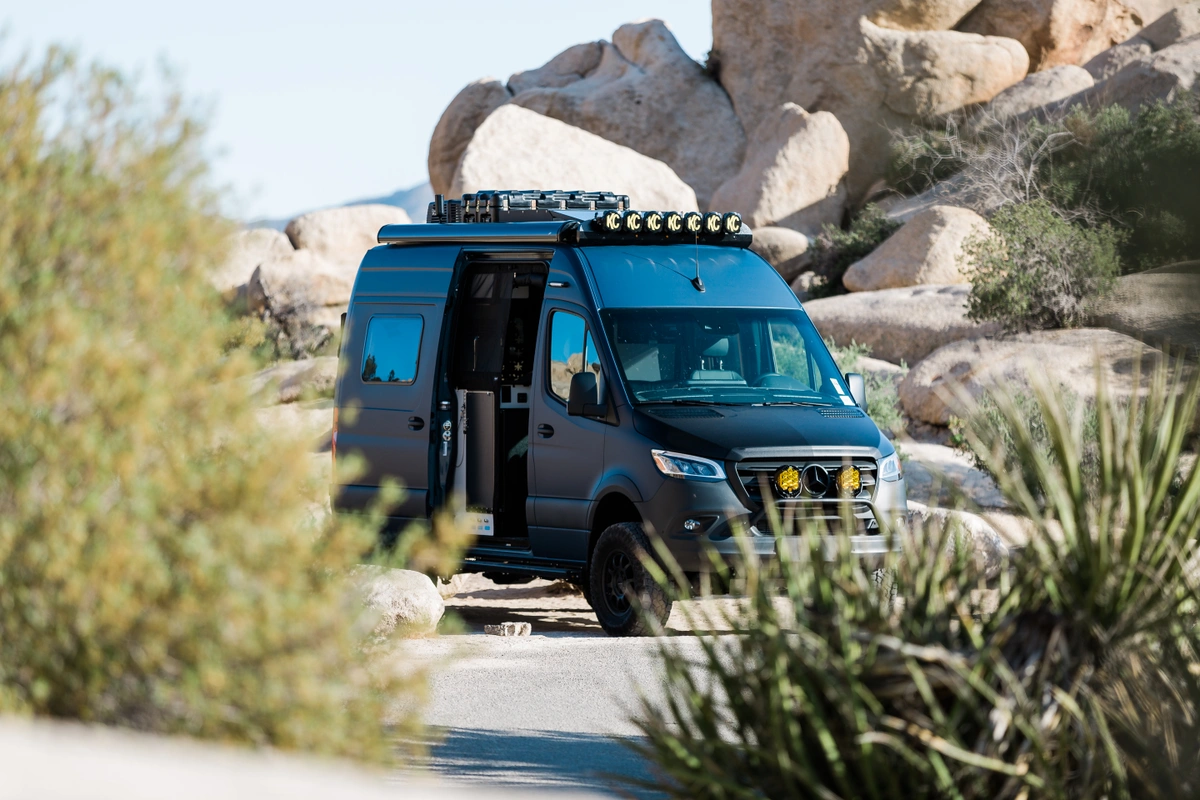This is one of my favorite topics and probably my most-asked question. Most people use their financials as an excuse not to get started on full-time travel. I can't count the number of times I've heard "You are so lucky to be living this lifestyle," and "I wish I could do this but it's too expensive." We did it. You might be able to as well. Let's take a look at the ways you can financially set yourself up for full-time RVing with kids.
Guest Post and Photos by Laura Georgieff
Get Started Yesterday!
I am running the risk of sounding abrupt and direct, but this is so important to hear: Get Started!! Take Action! If this is your goal or dream, act now. Make a plan and stick to it!
If I should pick my number one pet peeve (I am VERY passionate about this, as you can tell!), it is hearing "You are so lucky!" Let me set the record straight - there is absolutely NO amount of luck in play here. Zero. Nada! We have not won the lottery. No one put a rig in our hands and told us to go ahead and make fun memories. No one has ever funded any of our travels or lifestyle.
Full-time family RVing has been a long-term goal of ours and it took years of effort and dedication. Getting to the point where you can make that jump takes many sacrifices and you need to make travel your top priority and remind yourself of your goal often. But let me tell you - you will never regret making those sacrifices. This lifestyle is SO worth it!!
But sitting here, scrolling through Instagram and thinking "I wish we could do this..." is not going to get you anywhere. You need to make a plan and start acting yesterday!
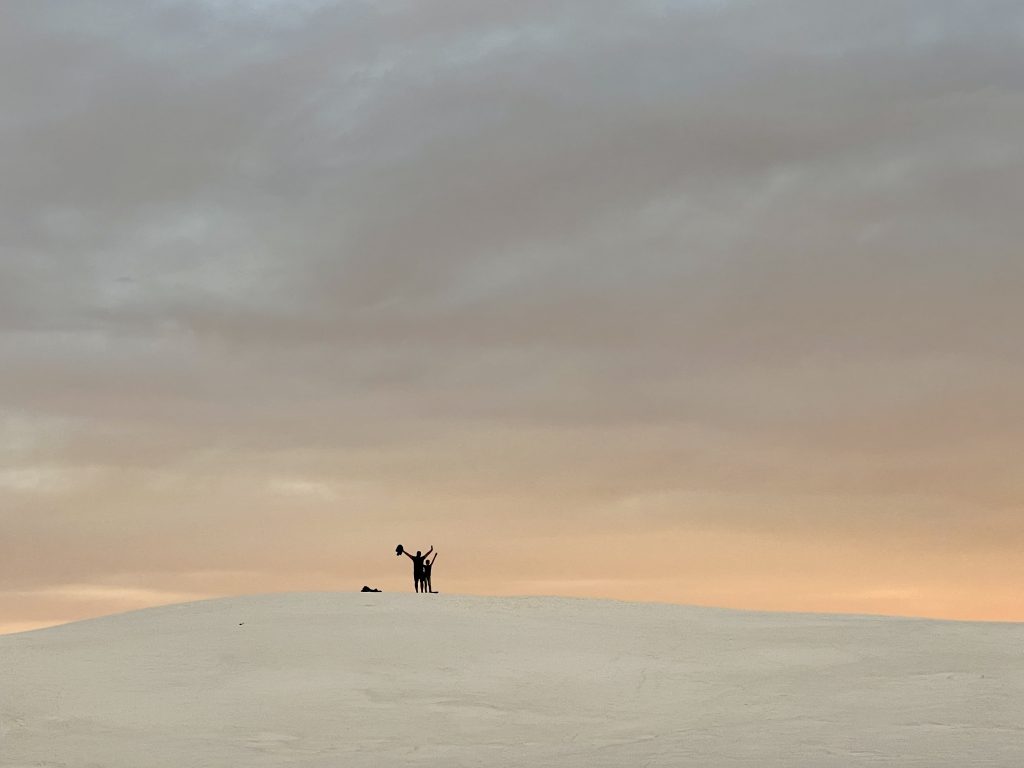
Our Journey
When I talk about years of sacrifices, I mean it. We left on our full-time traveling adventures with our three kids 2.5 years ago - first around the world, then full-time RVing.
We spent the 10 years prior to that, living as frugally as possible - this simply means: living below your means and saving money at every occasion!
Some of the things society regards as an accomplishment, or even just a proof of success, that we NEVER do, include: eating out, grabbing coffee, hiring a babysitter, having someone clean the house, getting our cars cleaned, shopping brands, buying full-prices items, purchasing new clothes, accruing debt.
We once had a salesman come to our house as we were shopping for a water filtration system. He said "Tell me how much you've spent in new underwear and socks the last five years." My answer: "Zero." The look on his face... His point was that his new filtration system would save us so much in laundry no longer being damaged by the hard water. "Zero" is pretty much how much we've spent on new clothing for fashion purposes. We buy as we NEED, not as we desire.
All of this is a matter of lifestyle. Our philosophy is that, if we can do it ourselves, we do, saving thousands of dollars every year. Think about that $5 Starbucks once a week. That's $260 over the year. Over 10 years, not including any interest and assuming prices don't shoot up, that's $2,600. Now add $100 of eating out each week, a babysitter at $50 for date night, a $4 carwash, and $25 of home decor each week...
When you feel judged, or when you compare yourself, remind yourself that this is a lifestyle choice. You are investing in full-time travel, a lifetime of memories, family bond, curiosity, and education. I promise you won't go to the grave wishing you had gotten another latte macchiato! Hiking the Grand Canyon, though?
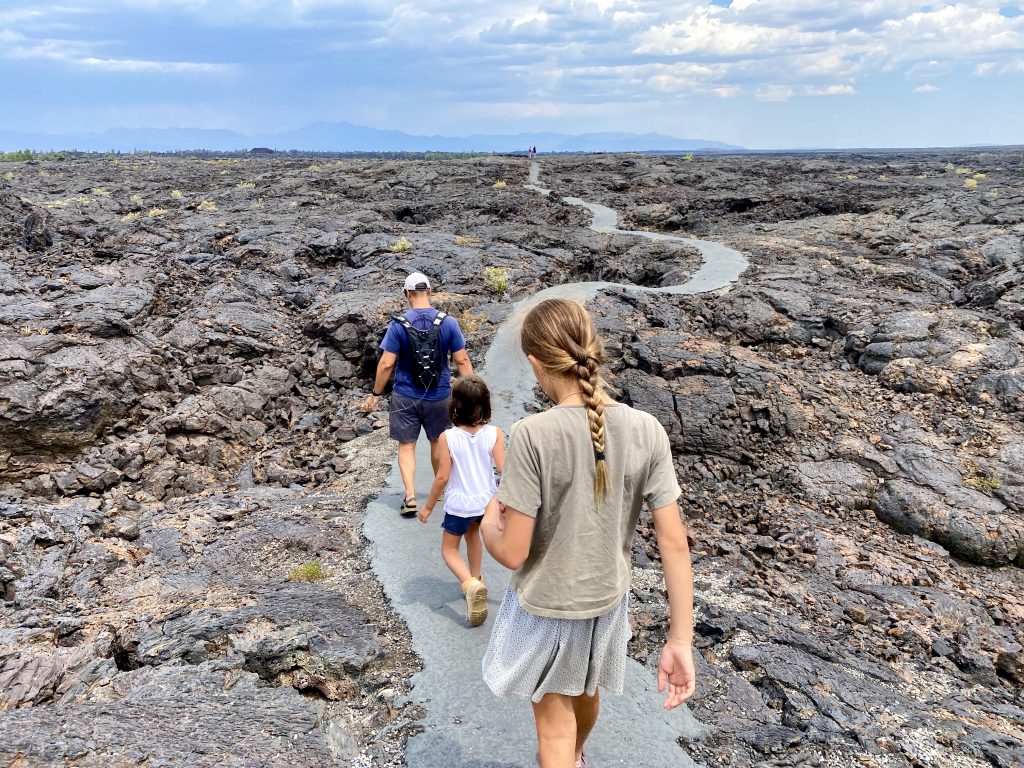
What To Do With Those Savings?
Now that we agree on saving a couple of hundreds of dollars each week from small lifestyle changes, you might be wondering what to do with those savings. To put things in perspective, it is $10,400 per year. Over 10 years, we're talking over $100,000...
There are several options. You could start a fund and accumulate cash to purchase an RV or use as travel expense when you hit the road, based on whether you plan on working on the road, or hitting the road free of work obligations.
You could also use that money to build equity in real estate you already own, or invest in new income-generating real estate for when you hit the road. The options are plentiful and this is part of the fun financial planning you need to do to set yourself up for financial success while full-time RVing with kids.
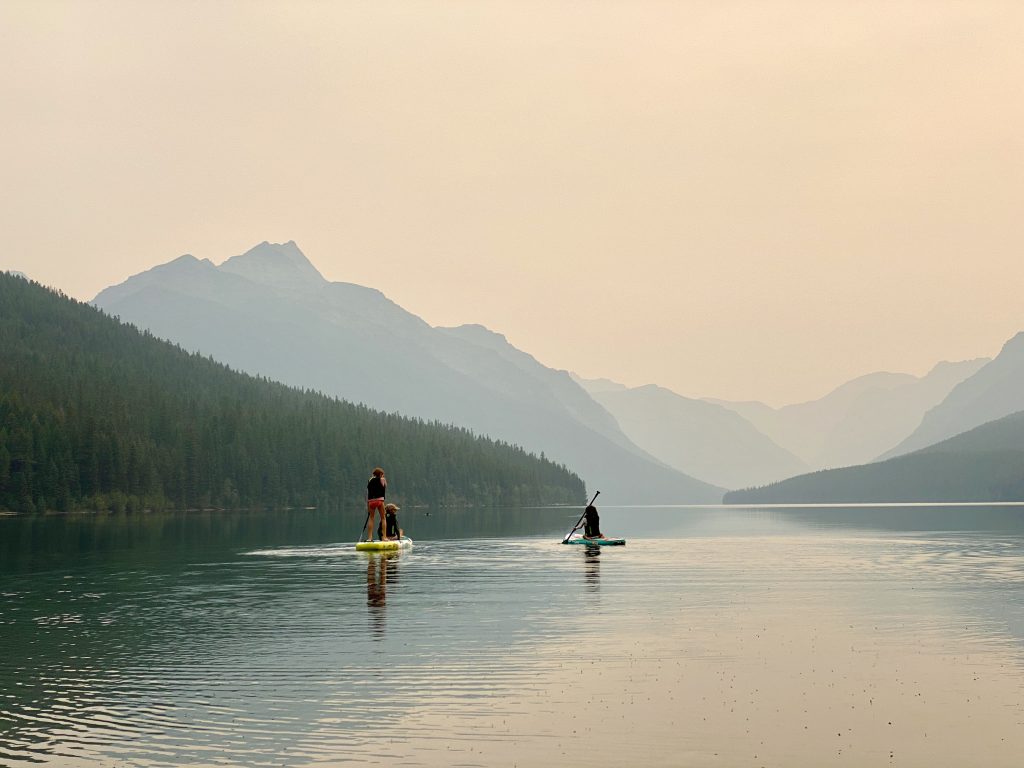
Homeowners - Selling Everything Vs. Renting
There are two kinds of full-time RVing families out there - those who sold it all (house, possessions, cars, etc.), and those who keep their home and rent it. This is all up to you and your personal preference. I would like to discuss both options in more detail:
Selling It All
Selling your home and possessions has a big commitment attached to it. Should full-time RVing not work out for you, or should someone require a home base for medical attention, for example, you would need to find a new home to buy.
By selling prior to your trip, you are leaving with a higher cash amount in your pocket, however, every dollar you pull out, is coming out of your savings. With low interest rates in the bank, you could be depleting your savings very quickly and may not be left with enough to purchase a new home when your adventure ends.
Keep in mind that, historically, the price of real estate tends to increase. It may even be difficult to afford the home you sold a couple of years prior, depending on the direction the market takes...
Selling your home, however, can help you purchase an RV in cash and give you more of an emergency fund, should the need arise.
Renting Your Home
This has always been our preferred way to full-time travel. If you like your home and/or hometown, renting your home will create invaluable passive income on the road.
Now, you need to take a few things into consideration: add up all of your costs (property taxes, home insurance, HOA payments, loan payments, etc.) and make sure you rent for a profit. If you do, this is income to be used towards your full-time RVing needs.
You may need to do more groundwork prior to leaving to save enough to purchase your RV and tow vehicle. This might mean a couple more years of saving. However, when you are done with full-time RVing, you have your home and community you love, to come back to.
Make sure to have an emergency fund for repairs (on your home and RV), should the need arise.
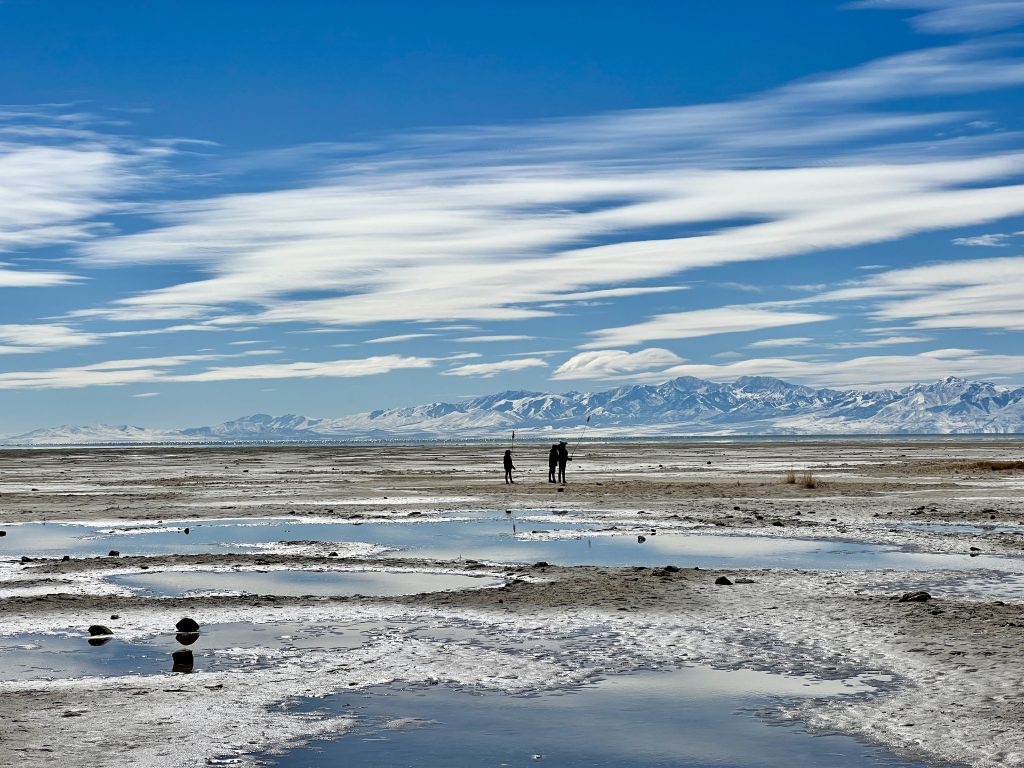
Passive Income
If you decide to rent your main residence, or if you have been able to invest in income-generating properties, you will be making passive income.
Passive income is the art of earning income without working regularly. You will still be involved in communicating with tenants, ordering work when repairs are required, chatting with your HOA as needed, etc. But the properties will earn you income and time will be better spent exploring with your family.
Depending on the size of your investments, passive income may be enough to sustain your full-time travel life, or it may act as a supplement.
Either way, passive income is wonderful to have when full-time RVing with kids, as it will require minimal time investment on your part, and bring in extra income. It has another massive benefit - it can be managed without the constant need to be connected. Spending a couple of nights in a national forest with no phone reception? No problem!
Active Income
You may choose to work on the road. In fact, I personally recommend it! When we traveled around the world, our daily budget equaled the net income from renting our personal residence and some income properties we acquired over the years. That budget (our net income) was $130 per day. With those $130, we fed five people, rented cars, booked accommodations, and had a tiny bit left for paid experiences. We had saved cash for 18 months of plane tickets, so that budget was separate.
When RVing around the United States, keeping a job is a lot easier. You are only dealing with four timezones, will be reachable via cell phone, and can find a decent internet connection nearly everywhere.
Having one, or two, active incomes on the road allows you to explore better, spending a little more on experiences and campgrounds. You will have less freedom since you will likely be restrained to working hours and need to be reachable. That might mean slower travel. You might also need to think harder about RV floorplans to find a design that works with working while the kids homeschool in a small space. If you, and your spouse, both work, think about the best way to homeschool your kids - online schooling might be a better option.
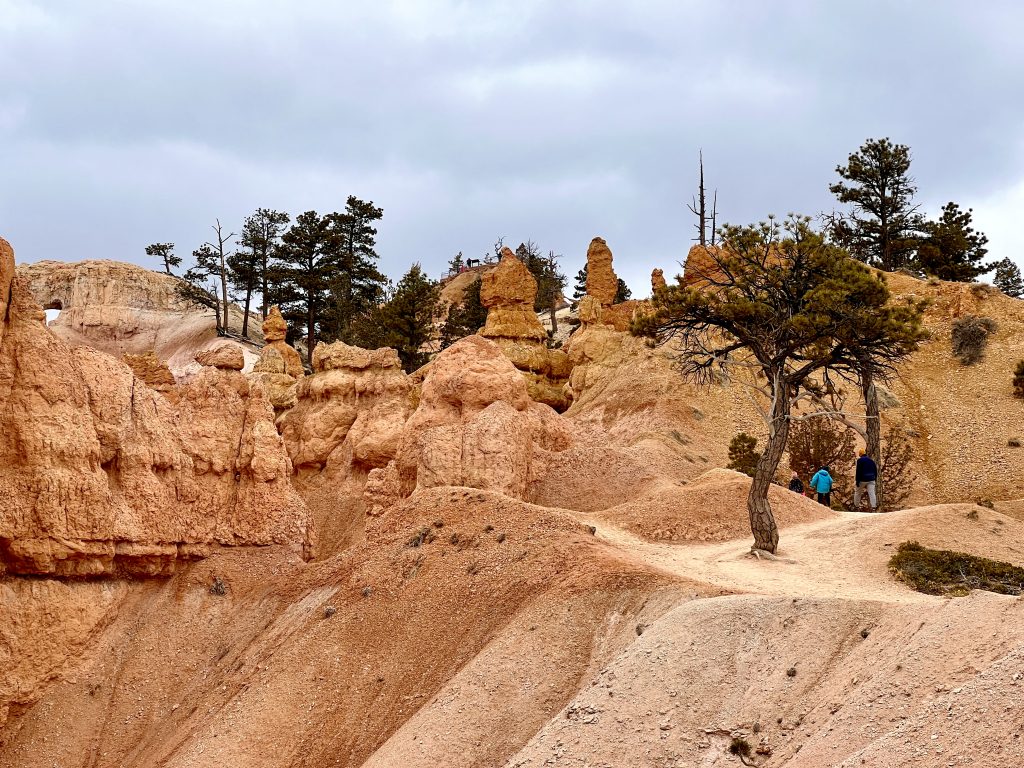
Budgeting
When you think about financially setting up for full-time RVing with kids, you need to understand what your budget might look like.
This will vary greatly depending on the kind of travel you choose. You can choose to boondock and stay on BLM land, free of charge; stay on NPS or state park land, usually between $5 and $35; sleep in campgrounds between $35 and $60; or spend some time in resort campgrounds, which can vary from $80 to $150+ a night.
Your second largest expense will likely be gas / diesel. This will vary based on the states you visit, the vehicles you drive, and the current cost of gas.
Food costs can vary greatly based on the state as well, but you can expect it to be within 20% of your grocery cost from home. Now, you might find yourself eating out more often than at home. When we are home, we never ever eat out... we don't order out either. While on the road, some days are long travel days, others are late national park visits.. and grabbing food on the way is very convenient - we cave in. This is what has most increased our food budget while traveling.
You may also find yourself paying for more experiences than at home. So make sure to add all of this to your budget to grossly figure out how much income you will need to make this trip work out.
And then, add some...
Do not underestimate the cost of maintenance. We changed the oil in our Class A motorhome and generator a couple of weeks ago, and it ran us $850. Depending on your set up, you may be maintaining two engines. And remember that things will break. Your RV is living through a series of earthquakes as you travel down the road. You need a maintenance and budget repair. You may also need to buy hotel nights to last through multi-day repairs. Make sure to leave with an emergency fund.

Slow Travel Vs. Fast Travel
Here again, the full-time RVing with kids community is divided. Most families slow travel. That has massive advantages. For one, it is much cheaper as you will be saving on gas/diesel, and can work out weekly and/or monthly rates with campgrounds! That might also make your travel planning easier and allow you to visit each area in more depth.
We have always traveled fast... we are small business owners and homeschool our three kids. This gives us some flexibility and we are able to manage with a fast traveling pace. It comes with a lot of exhaustion and we don't have the time to plan our travels, unless it is the summer season. We like to go as we feel, and our plans are always loose and ever changing.
We love the fast travel pace, but it is definitely on the expensive side of things. We can spend $1,000 in diesel a week, and that is not sustainable on the very long run.
Financial Setup For Full-Time RVing With Kids
My number 1 advice when trying to financially set up for full-time RVing with kids, is to start planning early. Do not expect this to be easy and be ready to make concessions for several years as you plan your new lifestyle.
It is 100% worth it, and you can make it work on a very small budget, I promise. Do not think that you need to be a millionaire or need to earn $20,000 a month to make this work. This lifestyle can be as expensive, or as cheap, as you want it to be. You have full flexibility and you sit in the drive seat (quite literally!).
We have friends who boondock over 300 nights a year. They have a solar system and tanks that allow them to do so. They live nearly free of charge and spend a while at each destination, reducing their gas spending. They explore our national land (believe me, there's enough to keep you busy, for $80 a year of NPS annual pass, every day of the year, for the next 10 years!). Their budget is minimal!
Others prefer nice resort campgrounds where the kids have craft activities, swimming pools with slides, a concrete patio, and all of the amenities you can dream of. We have a deadline and lots on our bucket list. We accept (and are able to afford) the financial hit in gas and maintenance, but save as much as possible on campgrounds. It is up to you, and you alone! But you can make it work - you just need to work at it. Make easy changes and chase that dream. It is worth it!
